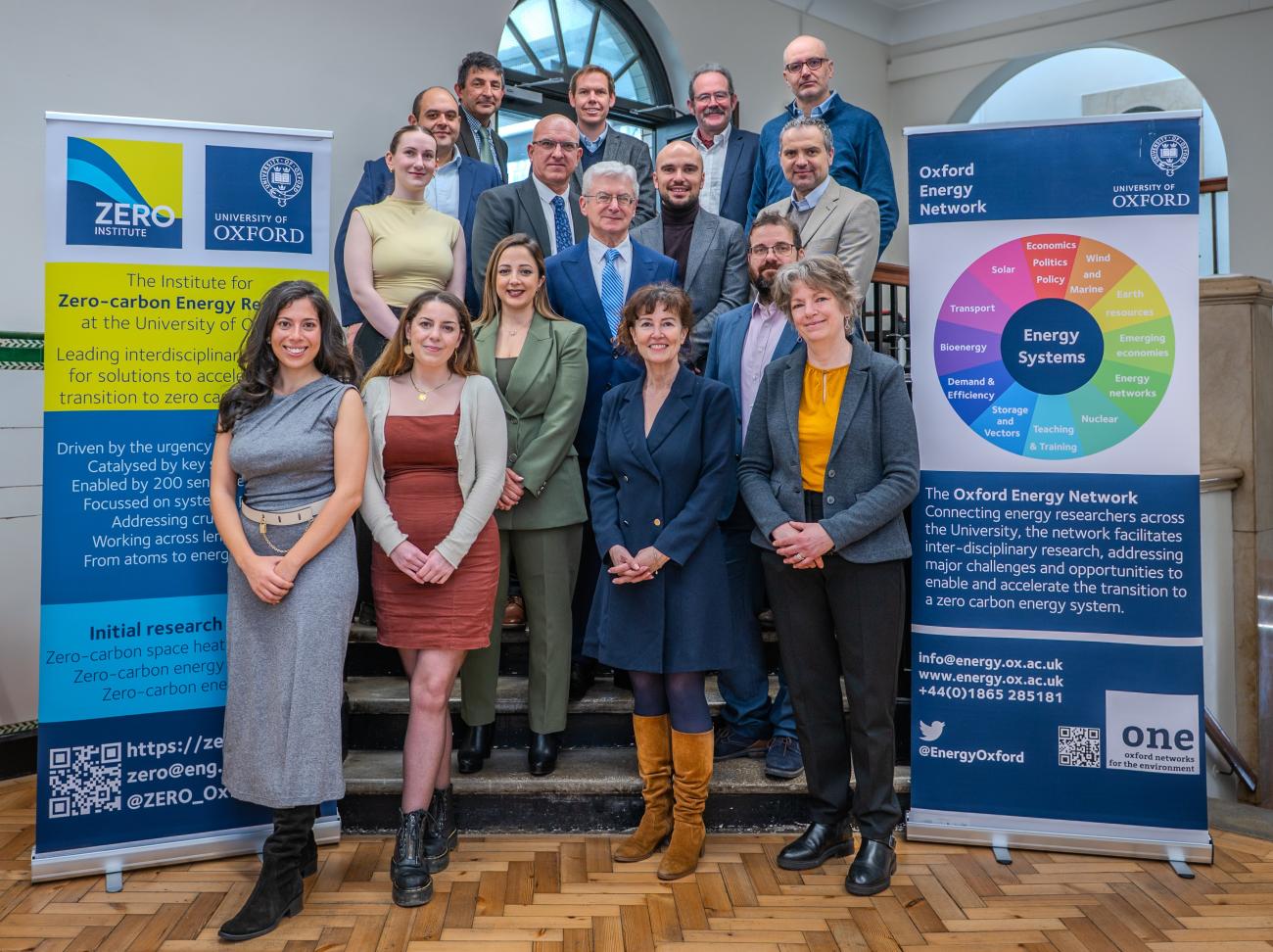The University of Oxford was delighted to host senior energy and environment professionals and civil servants from Malta for a one-day workshop to discuss key issues around transitioning to a net zero energy system.
As part of an FCDO funded project with the Maltese government on clean energy, the purpose of the visit was to draw insights from the university’s expertise to support the changes Malta is planning, including a focus on offshore wind initiatives.
The workshop was hosted by the Oxford Energy Network and the ZERO Institute and included researchers from the Environmental Change Institute (ECI), Institute of Science, Innovation and Society, Smith School of Enterprise and the Environment, and Engineering Science, who all came together to present their areas of expertise.
Tina Fawcett, the Oxford Energy Network Convenor, said:
It was wonderful to meet colleagues from Malta, to hear about their challenges and future plans and to bring experts from across Oxford University together to share our knowledge on the transition to net zero energy systems.”

Delegates at the workshop
Delegates, led by HE Katherine Ward LVO OBE, British High Commissioner to the Republic of Malta, included representatives from the FCDO, the Maltese Ministry for Environment, Energy and Public Cleanliness, Education Malta, the Climate Action Authority, the Regulator for Energy and Water Services and Interconnect Malta (ministries, policymakers, and regulators).
Ing Abigail Cutajar, CEO at the Climate Action Authority, Malta said:
Our visit to Oxford University has been an invaluable opportunity to engage with leading experts on the transition to net-zero. The insights shared were particularly relevant as Malta continues to implement ambitious plans towards decarbonisation. We greatly value the collaborative spirit fostered during this workshop and look forward to building on these connections to drive innovative, sustainable energy solutions for our islands.”
Key areas of interest discussed were offshore wind development, large-scale batteries, energy systems on islands, demand reduction in buildings and the role of people and organisations in the transition. This led to several possible future collaborations, such as a week-long workshop on future climate and the energy system, studying Malta as a case study in the MSc in Energy Systems, and Horizon funding opportunities.
HE Katherine Ward said:
It was a pleasure to join Maltese colleagues for a valuable exchange with leading researchers on clean energy and the net zero transition, hosted by the Oxford Energy Network and the ZERO Institute. This visit reflects the strong partnership between the UK and Malta, and our shared interest in sustainable energy, offshore wind, and innovation. I look forward to continuing our cooperation in support of Malta’s energy goals and broader climate ambitions.”
Lunch was kindly hosted at Reuben College, where the College President, Prof Lord (Lionel) Tarassenko, greeted the visitors.
The workshop was a great success and showcased how the Oxford Energy Network and the ZERO Institute bring together multiple research disciplines within the University to address the major challenges of providing secure, affordable and sustainable energy for all, as well as zero-carbon energy research, education and innovation, in a worldwide context.
Paul Shearing, Director of the ZERO Institute, said:
We were delighted to welcome the Maltese delegation to Oxford to explore mutual interests in zero carbon energy systems. Our round table was an excellent occasion for sharing expertise from across the University of Oxford and the ZERO Institute with a theme of decarbonising Malta, and our exploratory discussions have yielded multiple areas of interest for future collaborations. We are grateful to our visitors, for their active participation in our joint dialogue and to the UK FCDO for their support. We are looking forward to strengthening our partnerships moving forward to accelerate global decarbonisation."

